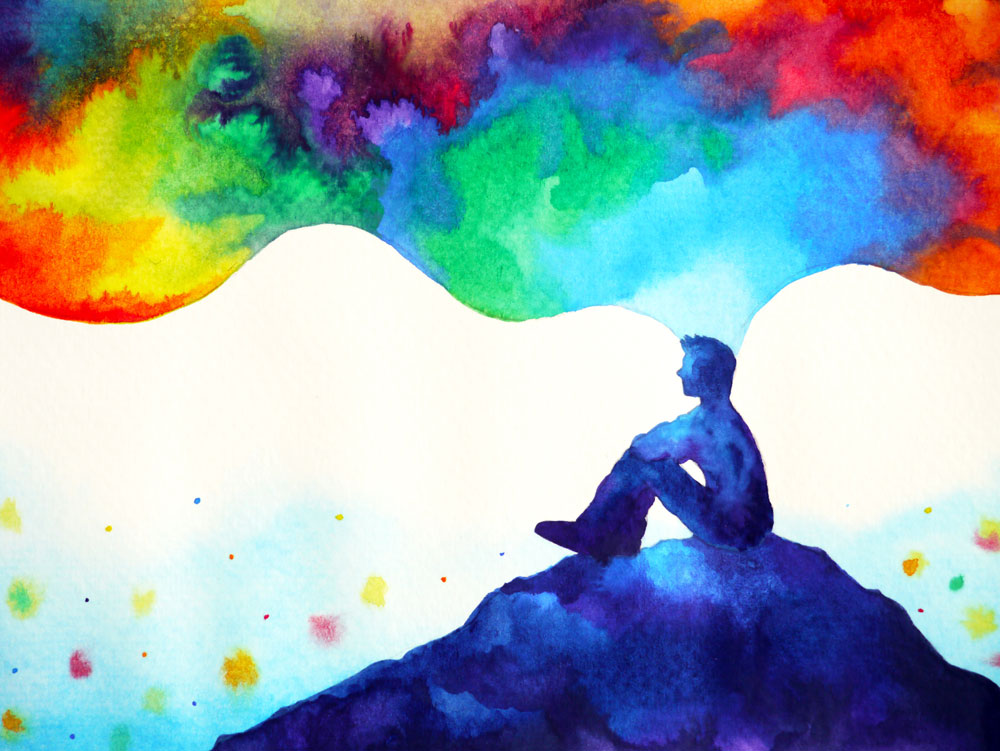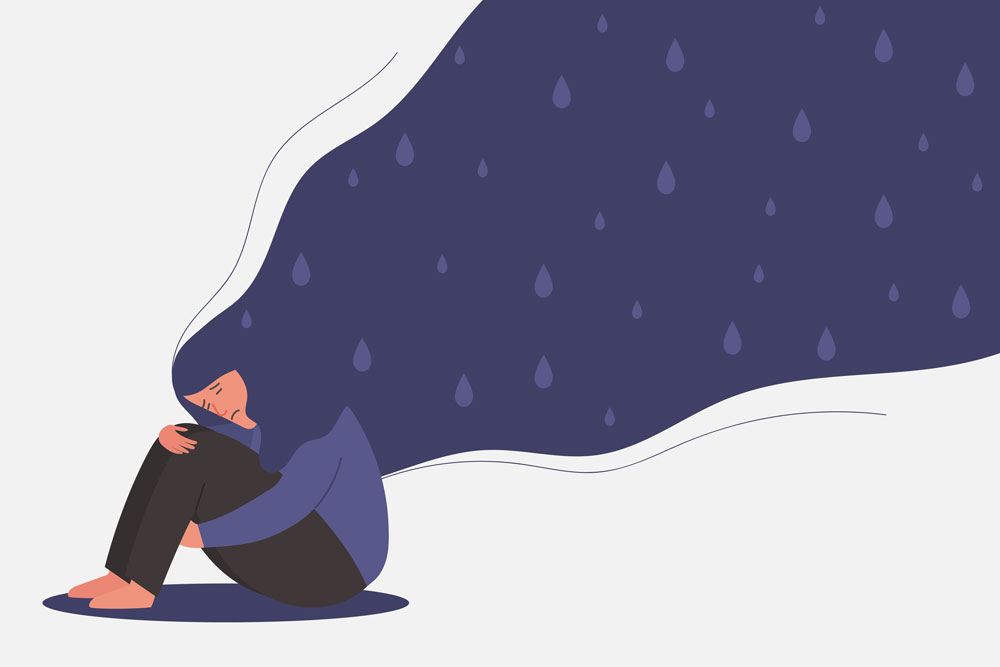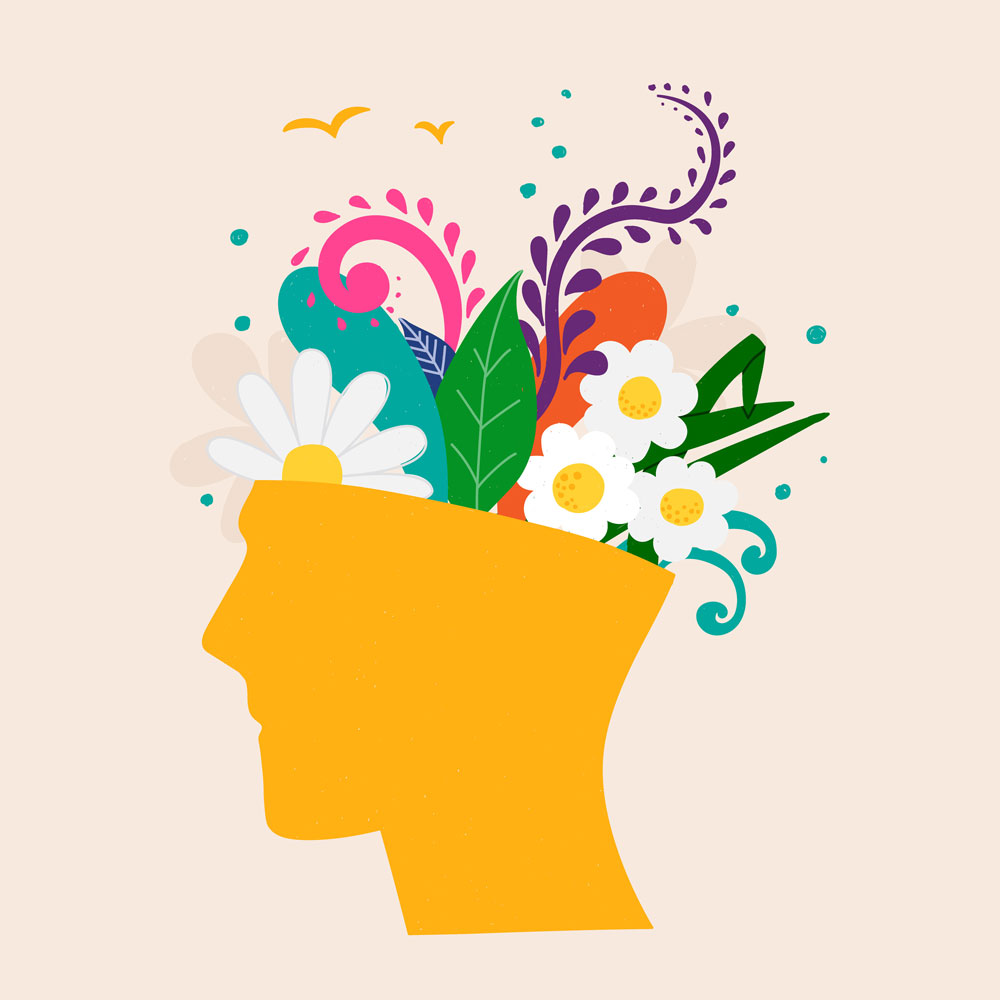
Thoughts fuel emotions. If you don’t like what you’re feeling, step back and examine what you’re thinking. Pain is inevitable, but you’ll suffer a lot less if you disengage from your thoughts.
-Buddha
In all cultures humans universally experience eight distinct emotions: love, happiness, sadness, fear, anger, disgust, surprise, and contempt and within those there are subcategories branching out to more specific emotions such as despair, hope, anguish, regret. There is a science behind how our thoughts trigger synapses in our brain to create our feelings in the moment. Our brain is constantly receiving information from our environment through our senses. Instead of experiencing the world objectively, we perceive the world subjectively based on our memories from our life lived experiences. This is why we all have different viewpoints.

Many have a preconceived notion that to be ‘happy’ we must never have negative feelings. Ironically, trying to avoid negative feelings only amplifies them. We are being negative about the negative, which creates a loop of negativity. We have these negative emotions for a reason. Often we can learn and grow from them and help ourselves and others. Actually if we just accept them and take what we can from them they will eventually disappear if we let them go.
Negative feelings can be detrimental to us though, when we linger in those thoughts of depression/sadness/regret for an extended period and continuously bring up those repetitive thoughts. This can cause chronic stress, ‘upsetting the body’s hormonal balance.’ This leads to the need to take medications to alter the chemical reactions in our brain.

Self-help books, religions, philosophers have expressed for centuries that we must be kind to ourselves and others, don’t judge, compare etc. We have rules that we were told to follow, but do we know the reasoning behind them, other than wanting to be a good person? The physical chemistry of our brain reflects the importance of this advice. Let’s compare research results of how our bodies and minds react to our thoughts.
Effects of Positive Thinking
Negative thinking has been shown to create the opposite effects:
Regret is a complex negative emotion that stems from guilt and disappointment and involves lingering and repetitive thoughts and emotions. Children are taught right from wrong and when other children are praised for good behavior, regret automatically kicks in (oh man I shouldn’t have done that). While adults fixate on the past regretting wrong decisions and missed opportunities e.g. (I should have bought that, done that, I would have had more by now or been happier, relationship decisions and on and on). The feeling of regret, wishing you can undo an action and do something differently, happens to all of us.
BUT how can I live my life with acceptance and confidence when I have so many regrets? I do not deserve happiness. Or the position that I do deserve happiness, why did this happen to me? It is someone else’s fault. As you get lost in these minds of regret it affects you and others around you.

Some tips that have helped me:
The problem with such books is that it is not enough to tell you what to do or how to feel or think. Unless you eliminate the roots of those feelings and actions just hearing that you should think or act differently doesn't help no matter how cleverly it is explained. I know from my own experience, I suffered from deep regret. Without looking inward through meditation and the help of meditation guides it would have been almost impossible to truly overcome. Through meditation I could clearly see and face the causes and effects of my actions that lead to the regret in the first place. Gradually my regret turned into determination to eliminate those causes. This was the positive side of pain. It opened new doors for me and a new life of helping others. When we can help others our own pain almost magically disappears.
I really want to encourage everyone to take the journey within themselves and change the fundamental roots of where their emotions, thoughts and actions come from. Through meditation you can eliminate all the things you accumulated in your mind, you will find that there is a you in there that you never knew. A you that can be happy regardless of conditions and see the world with joy, gratitude and acceptance.
